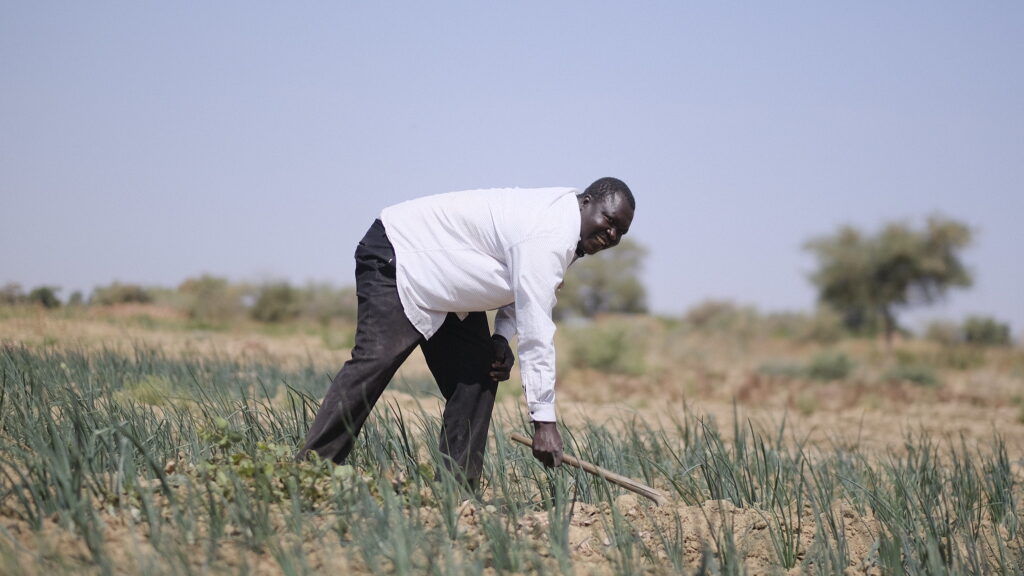
Chad | Nuba’s Story
In the village of Mandalia, Chad, farmer Yamadji Nanadoum Nuba is adapting to a changing climate—one tomato at a time.
Nuba grows onions, tomatoes, and other vegetables on land that had become difficult to farm after many years of intense use. Like many others in the Lake Chad Basin, he used to rely on purchased fertilizers. But rising costs and increasing pressure from drought made it harder to keep up. The land needed a new approach.
Through CLWR’s Nature Based Solutions project, being implemented in Chad and Cameroon through partners Lutheran World Federation, Nuba joined a Farmer Field School and learned how to make compost using local materials—like animal manure, straw, and ash. These organic fertilizers are easier to access and more affordable. They also help the soil stay moist longer, which is critical in a region where rainfall is scarce and unpredictable.
Now using both compost and irrigation, Nuba has transformed his vegetable garden. His crops are healthier, the soil holds water better, and harvests have improved. His wife Simone sells their vegetables wholesale at the Mandalia market, where their tomatoes are especially popular. Customers say they’re bigger, sweeter, and stay fresh longer—even without refrigeration. Each week, Simone sells around 10 bags of tomatoes for CAD 11 each, providing steady income for their family of ten.
Nuba is also looking ahead. As part of a “training of trainers” program, he’s now teaching neighbours—including Gama and Makhaila—how to compost and use water wisely. His knowledge is helping others grow more with less, protect their soil, and care for the land that sustains them.
“When you learn to make compost and keep the water in the ground, it changes everything,” Nuba says. “The soil becomes alive again.”
—
The nature-based solutions project is funded by the Government of Canada through Global Affairs Canada, and is implemented by CLWR in partnership with LWF Chad and LWF Cameroon.